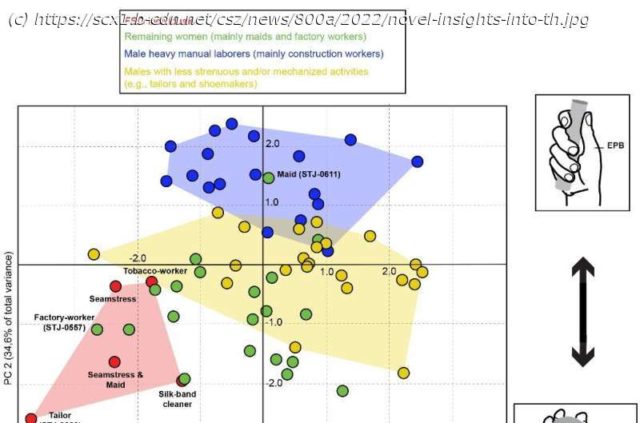The hand skeletons of women workers from the early days of industrialization reflect the diverse and unstable manual activities of their everyday lives.
The hand skeletons of women workers from the early days of industrialization reflect the diverse and unstable manual activities of their everyday lives.
New research led by Dr. Alexandros Karakostis from the Institute for Archaeological Sciences at the University of Tübingen and Dr. Gerhard Hotz, Curator of Anthropology at the Natural History Museum of Basel, demonstrated for the first time that hand bones preserve extensive information on the daily lives and activities of past women and men. The results have been published in the American Journal of Biological Anthropology.
The researchers have applied an innovative methodology called VERA on the 19th century hand skeletons of workers from St. Johann Hospital Cemetery in Basel, Switzerland: They examined them with a virtual 3D analysis, reconstructed their daily manual activities and compared those with documented life histories. “This validated approach relies on the 3D analysis of the bones, focusing on the areas where the muscles attached during life,” says Dr. Alexandros Karakostis, lead author of the study and creator of this novel approach.
Changing jobs
The hand bones studied clearly showed the sex-specific division of labor during industrialization, one of the most formative periods of modern societies.






